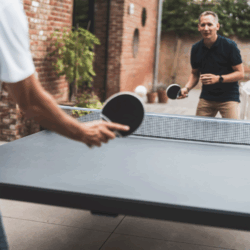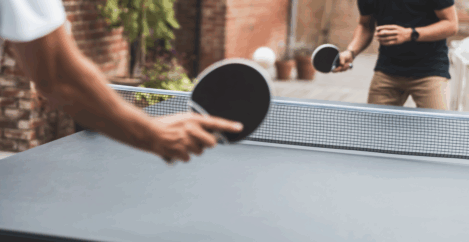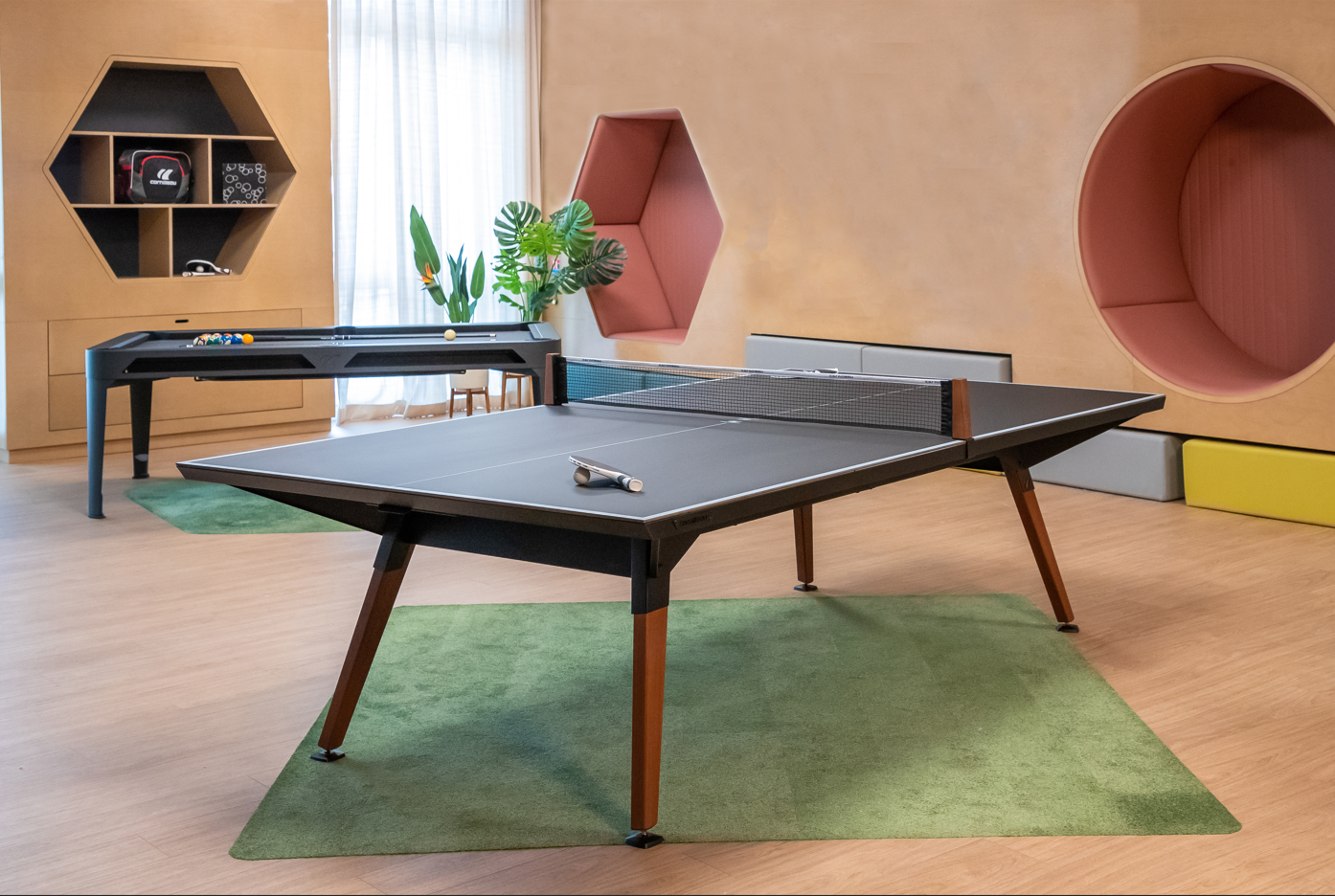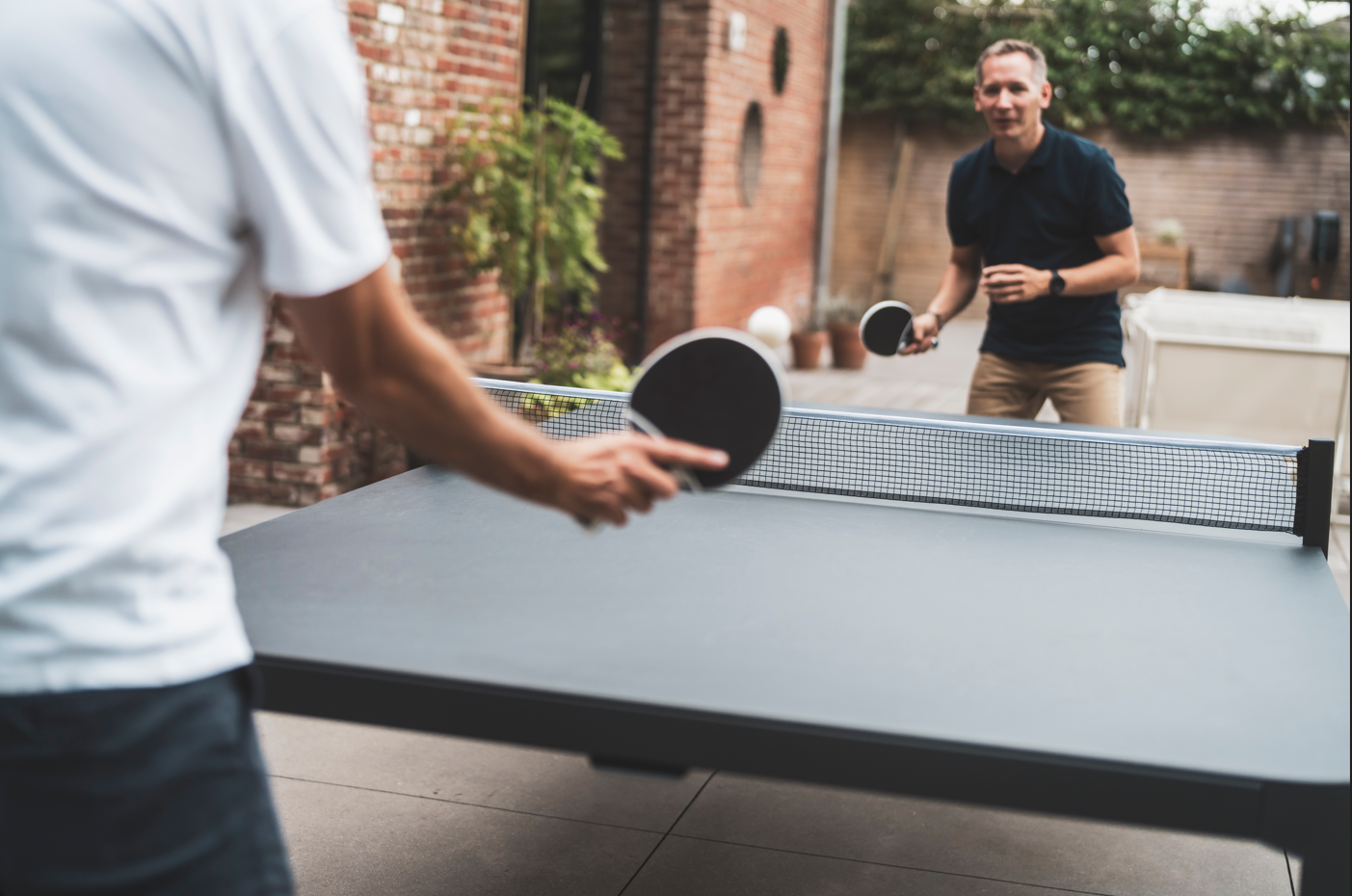August 26, 2025
The power of play: how pool and table tennis can transform the workplace
 Workplaces are under growing pressure to support both productivity and well-being. Hybrid schedules, long desk hours and rising stress levels mean organisations are rethinking what the office should provide. While wellness programmes and flexible policies have their place, one of the most simple and effective interventions is often overlooked: play. Games like pool and table tennis may once have been dismissed as gimmicks, but today they are increasingly recognised as part of a serious workplace strategy. Far from being distractions, they support movement, collaboration, mental health and focus – all of which are critical in a modern knowledge economy.
Workplaces are under growing pressure to support both productivity and well-being. Hybrid schedules, long desk hours and rising stress levels mean organisations are rethinking what the office should provide. While wellness programmes and flexible policies have their place, one of the most simple and effective interventions is often overlooked: play. Games like pool and table tennis may once have been dismissed as gimmicks, but today they are increasingly recognised as part of a serious workplace strategy. Far from being distractions, they support movement, collaboration, mental health and focus – all of which are critical in a modern knowledge economy.
Tackling sedentary habits
Office life is still defined by sitting. The NHS advises adults achieve 150 minutes of moderate activity a week, yet long desk hours make this difficult. Short bouts of movement – such as a quick game of table tennis – can help bridge the gap. Premium tables, like those from Cornilleau, are designed to withstand heavy use in shared spaces, making them a practical and lasting investment for active workplaces.
The National Centre for Sport and Exercise Medicine has shown that workplace activity supports both physical and mental health. Small, active breaks are particularly effective at counteracting the risks of sedentary behaviour, while also providing a refreshing change of pace in the working day.
Connection and culture
The cultural value of play is easy to underestimate. A pool or table tennis table often becomes a social hub, creating opportunities for informal conversations and connections across teams.
Gallup’s research into employee engagement shows that teams with strong social bonds are both more productive and more profitable. Recreational activities provide a natural, low-pressure way for people to build trust and collaborate – especially important in hybrid organisations where face-to-face time is limited.
Recovery and focus
One paradox of productivity is that working longer rarely leads to better results. The Health Foundation points out that stress relief and recovery are essential to sustained performance. Recreational games offer an effective reset: they allow employees to step away from their screens, clear their heads and return with sharper focus.
These active breaks are not a distraction but a mechanism for maintaining concentration and preventing burnout.
Cognitive benefits
Table tennis in particular demands speed, coordination and strategy. Harvard research has linked physical activity to improved memory, decision-making and problem-solving. In other words, these activities train the mind as well as the body, directly supporting the skills modern workplaces rely on.
A signal of values
Perhaps most importantly, recreational spaces send a message. They show that an organisation values balance and well-being as much as performance. A CIPD report notes that more than 40% of UK workers consider work-life balance a top priority when assessing employers.
By embedding play into the workplace, organisations not only enhance day-to-day well-being but also signal a culture that attracts and retains talent.
Rethinking the role of play
The modern office is no longer just a place to complete tasks; it is where culture and collaboration are enacted. Recreational activities like pool and table tennis are part of this shift. They are not indulgences but tools for sustaining health, trust and productivity.
At Cornilleau, we believe the question isn’t whether these games belong in the office, but how play can be integrated into a broader strategy for better work – and we’ve seen the difference it can make.
Darren Mason is UK Managing Director at Cornilleau


















